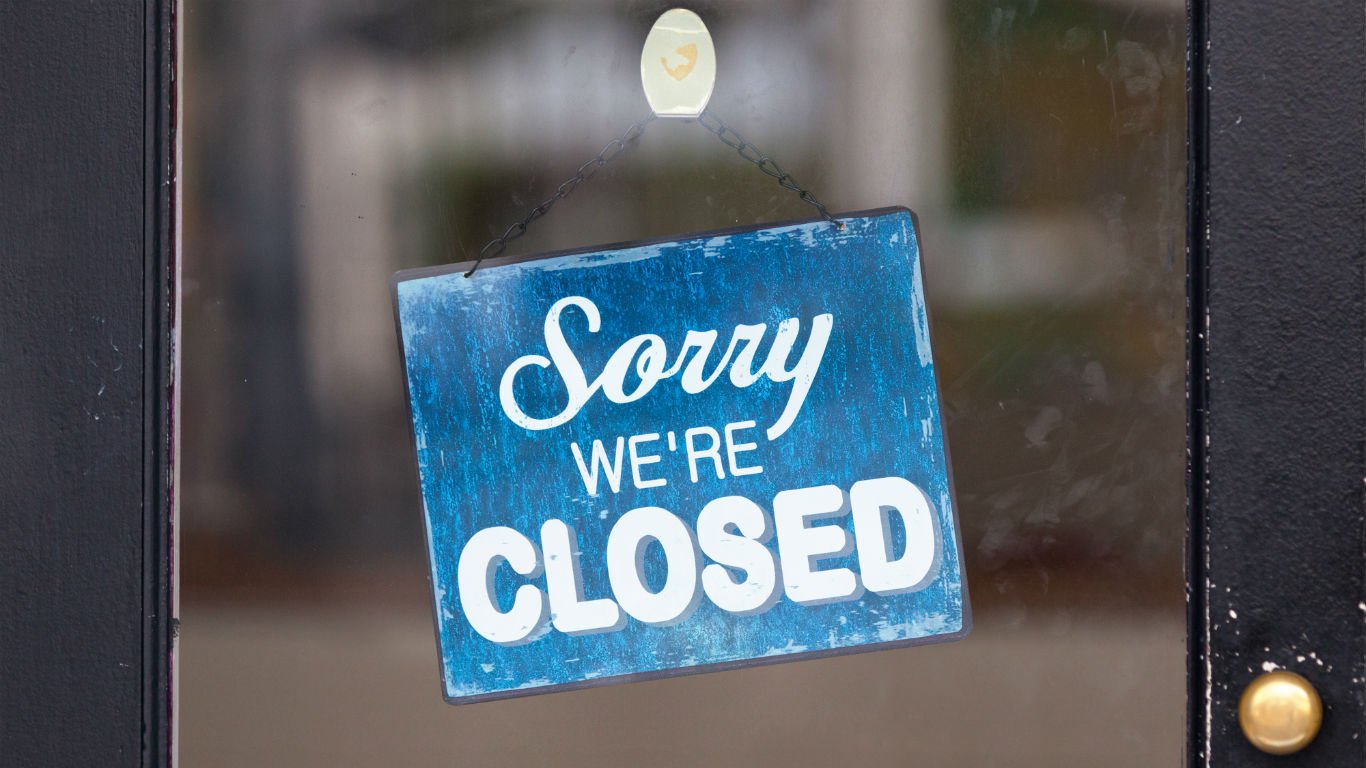

Small businesses are the backbone of America’s economy. Many large companies have multibillion-dollar balance sheets that can act as a buffer in hard economic times. The smaller a business is, the harder it generally is for an owner to absorb deep economic pressure. Despite the government aid coming for payroll protection, many small and independent business owners are now worried that they may never recover from the coronavirus-triggered recession.
More than 1,200 small business owners responded to a LendingTree survey, and a whopping 71% of them are now worried that they may never recover from the economic downturn. To put the misery in even more clear forecasts, nearly half of those small business owners surveyed have temporarily closed their businesses.
Without a source of revenue, layoffs or reduced hours also have been common. In an effort to further stay afloat, business owners are trying to secure additional and perhaps costly funding, just to keep their businesses alive.
The LendingTree survey was conducted with 1,221 small business owners via an online survey. These business owners had previously applied for funding through LendingTree’s small business lending database, and the survey was conducted between March 24 and March 30. LendingTree maintains that it remains unclear if government aid will be sufficient to save entrepreneurs who are being hit the hardest by the economic crunch from COVID-19.
Of small business owners who are worried that their business will never recapture what was lost under this economic hit, owners in the accommodation and food service segment and in the retail trade segment of the economy face the highest fears.
LendingTree reported that 47% of small business owners have taken on debt in an effort to keep their businesses going. An additional 34% of them have unsuccessfully attempted to secure additional financing but were not approved. Also, eight out of 10 small business owners currently have no idea where to get emergency funding, with some 69% of them not having ample cash to get through even the next 90 days.
Some 49% of survey respondents have temporarily closed their business, and another 36% remained open for business but with reduced hours. Also worth noting was that over 75% of the owners who did close have been forced into closure due to local orders to shelter in place and to adhere to social distancing mandates.
Layoffs are rising as revenues come under pressure. The figures on how small businesses have been hit during the coronavirus have been grueling. Even through just March 30, more than one-third (37%) had laid off employees, 43% had reduced hours of operation and 12% had implemented pay cuts. As for revenue losses ahead, some 57% of small business owners expect to lose at least half of their revenues in the next 90 days. And 36% of small business owners anticipate that they will lose more than 75% of revenues in that time.
Taking on additional debt can be expensive and can drive up costs ahead. Of those who have taken on additional debt, 39% of respondents took on credit card debt, followed by 17% who have taken out a business loan. Another 12% of business owners have taken out a personal loan, and 12% now have another source of debt.
Hunter Stunzi, senior vice president of Small Business and Investments at LendingTree, said of the survey:
Small businesses in virtually every industry and state have been hit hard by the coronavirus, and some will never reopen. Unfortunately attempts by lawmakers to clear a path for rapid funding have so far fallen short as too many businesses are unsure or unable to access funds fast enough to save jobs. Lenders are confused by the evolving SBA rules and systems adequate to process the overwhelming demand. Technology-enabled non-bank lenders have not yet been deputized to be part of the solution, but that’s an avenue that should be considered.
The long and short of this is that, even if it is from small businesses that were seeking funding, it is a disastrous representation of the small business economy. If small businesses are truly the backbone of the American economy, then its posture would be crippled.
Essential Tips for Investing: Sponsored
A financial advisor can help you understand the advantages and disadvantages of investment properties. Finding a qualified financial advisor doesn’t have to be hard. SmartAsset’s free tool matches you with up to three financial advisors who serve your area, and you can interview your advisor matches at no cost to decide which one is right for you. If you’re ready to find an advisor who can help you achieve your financial goals, get started now.
Investing in real estate can diversify your portfolio. But expanding your horizons may add additional costs. If you’re an investor looking to minimize expenses, consider checking out online brokerages. They often offer low investment fees, helping you maximize your profit.
Thank you for reading! Have some feedback for us?
Contact the 24/7 Wall St. editorial team.



